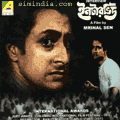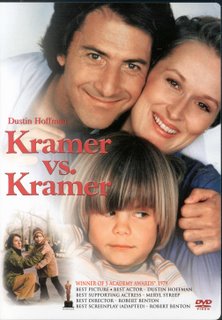
I have seen Plato
Satyajit Ray was never known to be overtly political – neither in his films, nor in his private life. Yes, he did hold an election card and like a good citizen he would assemble at the polling booth and get his fingers dotted. As a matter of fact, in one of his letters to Mary Seaton, who later wrote his biography, The Portrait of a Director, he had mentioned clearly to her, that perhaps Pratidwandi (The Adversary) had been his most political work.
The insignia of Indian cinema, Satyajit Ray, only made aesthetic movies, on a large, soft, clourful canvas – the maker of timeless classics like Charulata, Jalsaghar and of course, The Apu Trilogy.
Now, keeping with the rest of my thesis, I have actually chosen a rather controversial film of the same maker. Though I have earlier mentioned that The Adversary remains his main and perhaps most political work, I have chosen one of his comedies, Mahapurush (The Holy Man) as my subject to talk about a psychotic analysis on a completely different level. Before I delve into my discussion, let me first provide the unfamiliar readers with the background of the movie.
Mahapurush, made in 1965 was the second half of a two-movie film made by Ray, titled Kapurush o Mahapurush (The Coward and the Holy Man). Based on a story by the popular Bengali comic writer, Poroshuram, a very serious man in real life, also the author of Ray’s only other comedy, Parash Pathar (The Philosopher’s Stone), Mahapurush tells the story of a certain Birinchi Baba, a first grade fraud, posing as an immortal saint to loot gullible people, of whom the world seems to be so full of.
Without any trace of slapstick, the movie sticks to the laugh-a-minute routine, splitting the audience into hoarse laughter, till they are left wreathing to their stomach pangs. Shuffling once again to the storyline of Mahapurush, as mentioned earlier, it contains the exploits of a certain Birinchi Baba (Charuprakash Ghosh), who is extremely fond of his famous doctrine – the convergence of time future and time past. The optical illusion was indeed so captivating that the minute the show was over at Kolkata’s prestigious Metro cinema, every member of the audience were trying to figure out how the thing worked.
Birinchi Baba, or babas of the world, are according to me and many people for that matter, the biggest psychotic killers in the world – because they do not declare their killer intentions openly, they are disguised killers. And the garb that they use is in itself the pretentious killer – religion. What the ideal side of religious practices had originally meant to dictate, has just got lost in obscurity over the years. From true souls like Ramkrishna Paramahans and the Sai Baba of Shirdi, we are actually left to these Birinchi Baba’s, who are pathetic liars to rationality. But then the golden question is if these people offer lies, how are they killing and what?
They are killing rationality – the very same rationality that would be used against them. From the opening shot of the movie, we see how a foolish man is tricked by the Baba to believe that he administered the sunrise by ordering it to get up. He breaks down like a child, surrendering himself completely to Birinchi. The man’s rationality has now been murdered – he has forgotten about the earth’s rotation, revolution, planetary position, everything! Birinchi has struck.
Now, leaving ourselves to our own rationality, we may also judge this particular man in this train to be thunderously weak-minded. However, Birinchi’s exploits do not end their. In order to solve the man’s problems, Birinchi moves into his house and starts sermonizing. Soon people flock to his house, the erudite Bengali gentleman, the wealthy but stupid Marwari – all kinds – would we call all these people weak-minded? But they too believe his words, that he has “met Plato, Jesus (a young child) and also the Buddha, taught E=Mc2 to Einstein” and calls the Crucification of Jesus crucifact, because he actually saw it with his own eyes. Another shot by Birinchi, is that the assistant of his (Robi Ghosh), was actually found by him in a crowded market place at Babylon! The Marwari is so dumbfounded; he turns to the sophisticated Bengali and asks – “Who Plato?” The Bengali replies, “Plato, Plato, Greek Philosopher.” The Marwari turns back, no more enlightened than he originally was.
Birinchi baba goes on with his exploits, fooling and murdering, claiming to have eaten a hippopotamus, to the point where he can bring down a God – with the magic words, “OM ores, OM nific, OM nescience, OM nibus, OM nivorous!” to which Satya, one of the principal characters retorts, “Is he a tantric?” A cynical procurer negates it by saying “he is a Dhanatantric,” – which in Bengali means, A Capitalist.
Moving on to the last shot, when Satya and his friends catch him and threaten him to leave, he escapes with his assistant, who was supposed to be Goddess Kali that night, with his attachment of four wooden hands – however, a significant aspect of the four hands, reveal that they hold four wallets in them – the final heist from this place before moving on.
The second murder – this time that of religion as a whole. Birinchi baba subverts the concept of religion to satisfy his own personal needs, he stops people from finding out that ideal, scriptural religion by dictating to them his own beliefs, policies and other dictates, which are of course false!
Therefore, I can perhaps now safely put that this is the worst killer amongst us, one that is the hardest to catch.



